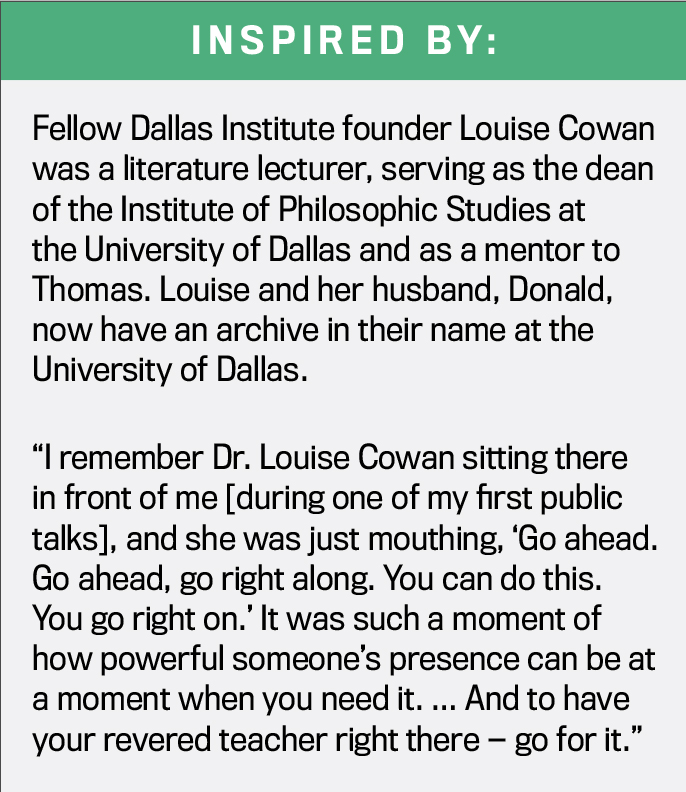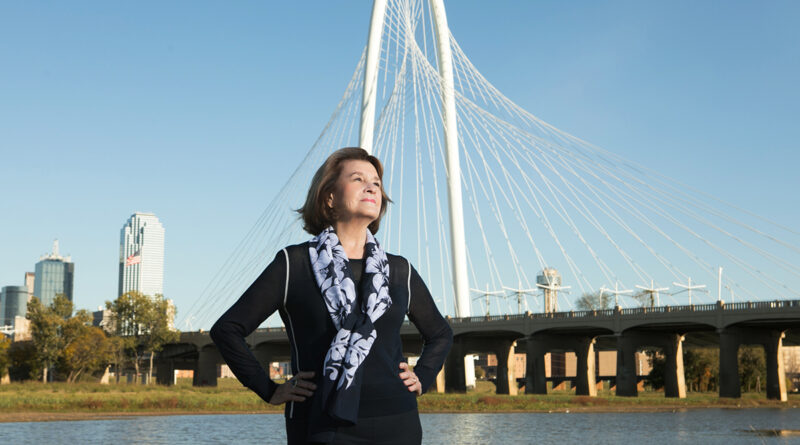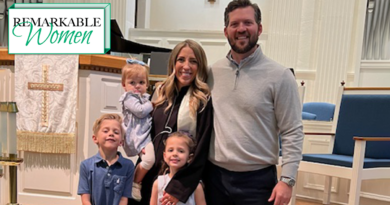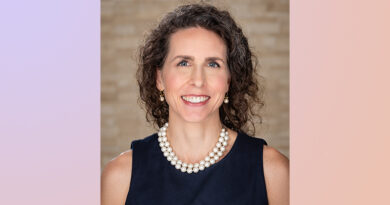Gail Thomas
Founder of Dallas Institute, Trinity Trust Foundation
A long life in Dallas has allowed Dr. Gail Thomas to preserve the heart and soul of the city.
Thomas now lives in Bluffview, but her origins start in McKinney, where she grew up hearing about her mother’s studies of religions. This led her to become interested in belief systems and how they can be used to understand the world.
In 1980, Thomas helped found the Dallas Institute of Humanities and Culture, using her humanities, literature, and psychology background to keep the Dallas culture alive.
“[At the Dallas Institute], we’re concerned with the heartbeat of culture,” she said. “We’re concerned with the heart and soul of things involved in the city.”
Although retired from her position as the institute’s director, Thomas is still active on its board, working closely with its president, Seemee Ali.
The institute invites professionals and lecturers from around the world to participate in their programs on the city, education, and cultural and spiritual psychology.
One of the institute’s programs is the Teacher’s Academy, where teachers come together for the Sue Rose Summer Institute, where they read and discuss literature to help broaden their knowledge and understanding in the classroom.
“[The teachers] come free because we’re honoring [them],” Thomas said. “We feel teachers don’t get the honor that they deserve. … They’re treated as valued, honored citizens of our society, and they love it. I was just reading comments from last year’s Teacher’s Academy, and oh my goodness. Just what does it for them makes me tear up to just think what it means.”

When she retired from the institute in 1998, then-Dallas Mayor Annette Strauss asked Thomas to start a project to encourage public interest in the Trinity River. In 2004, the Trinity Trust Foundation — now known as the Trinity Park Conservancy — was born, where Thomas served as CEO until 2016.
The foundation’s primary goal at the time was bridging each side of the city across the river, leading to the building of the Magaret McDermott and Margaret Hunt Hill bridges, which Thomas worked on with six other women.
“Women working together in a city and what it can do for a city is limitless,” she said. “Women will come at something with more heart, warmth, feeling, and a willing[ness] to be inclusive to others and work for the general good.”
Thomas can still remember the latter’s opening. The beating of the drums from the Indigenous group performance, the marching of everyone involved in the project, and specifically, a little boy who spoke to her.
“After the parade, I felt somebody tugging on my shirt,” Thomas said. “I said, ‘Yes, what is it?’ And he had on his daddy’s banner and his daddy’s hard hat. And he said, ‘I just wanted you to know my daddy built this bridge.’ Well, I burst into tears. I just thought, ‘Oh my gosh, that’s what this is about. That little boy took ownership of his city.’”








